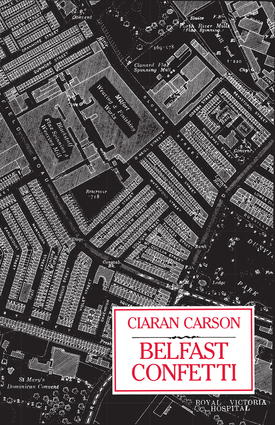Overview
Belfast Confetti, Ciaran Carson’s third book of poetry, weaves together in a carefully sequenced volume prose pieces, long poems, lyrics, and haiku. His subjects include the permeable boundaries of Belfast neighborhoods, of memory, of public and private fear, and, indeed, of the forms of language and art. Carson finds unexpected uses—constructive and destructive—of the building rubble of Belfast history. Rich in lore of place, these innovative and vividly fresh poems draw deeply on traditions—oral, local, and literary.Author Biography
Born in 1948 in Belfast, Northern Ireland, Ciaran Carson studied at Queen’s University, Belfast, where, from 2003–2015, he served as the director of the Seamus Heaney Centre for Poetry. Though recently retired from that post, he continues to teach a postgraduate poetry workshop there, in addition to overseeing the Belfast Writers’ Group.Earlier in his career (from 1975–1998), Ciaran Carson acted as an arts officer for the Arts Council of Northern Ireland. He is also a member of Aosdána and is a Fellow of the Royal Society of Literature. A writer of both poetry and prose—fiction and non-fiction alike—Ciaran Carson has also translated many texts, including The Midnight Court, a work of the eighteenth-century poet Brian Merriman, and a version of Dante’s The Inferno, which won the Oxford Weidenfeld Translation Prize. His other awards include the first-ever T. S. Eliot Prize (1994, for First Language), and the Forward Prize for Best Collection (2003, for Breaking News).As well as being a significant poet and careful translator, Carson is also a scholar of traditional Irish music; he frequently plays the flute alongside his wife, the accomplished Irish fiddler Deirdre Shannon. He has said: “I’m not interested in ideologies . . . I’m interested in the words, and how they sound to me, how words connect with experience, of fear, of anxiety . . . Your only responsibility is to the language.”

